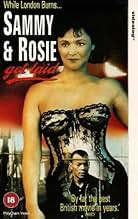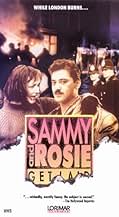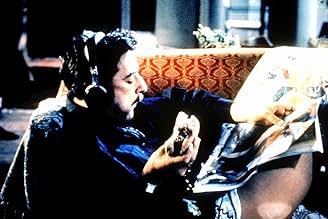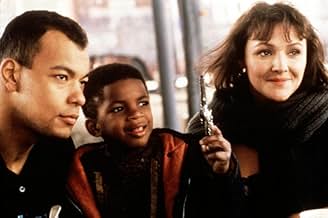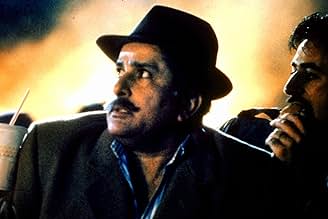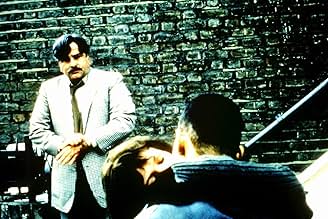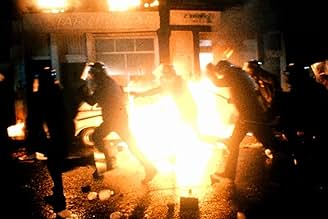This art film and commentary on England's severe adjustment pains after decolonization is at least interesting. It was purposely made to be a decentralized movie, but it seems that it could easily be argued that Rafi is the central character. This makes me wonder if the author's point actually was communicated accurately.
I agree that the sex scene was a bit much and very unnecessary (although I love how it was put sarcastically to a rag-tag chorus singing "My Girl"). However, other scenes make up for that relatively miniscule part of the movie (such as Sammy listening to "Erlking" while Rafi is scared for his life--one of the funniest and most intelligent scenes I have ever seen). The attraction to this movie is the imagery, cinematography, and writing. This movie has attracted a cult following amongst sociologists; they claim that the movie is arguing that postmodern identity formation is more fulfilling that modern identity (don't worry if you're not acquainted with these terms, it's all garbage and only fulfills their egos). Rafi is the most certain about who he is, but this results in him being the most ignorant out of all of the movie's characters. Whatever. I think that they are reading too much into the movie. To me, this movie is an exaggerated attempt to reveal what it is like to be a "former colonized" individual trying to live in your colonizer's country, as well as how the decolonized country (in this case Pakistan) ended up as brutal as the colonizers were (England). It was necessarily exaggerated and therein the absurd and violent scenes created hammers this point home. Would I reccommend the movie? Only if you haven't better things to do, like wash your dishes or play parcheesi. If you want to see some nifty camera work, by all means rent the movie. If you're looking to be easily entertained, forget about it.

